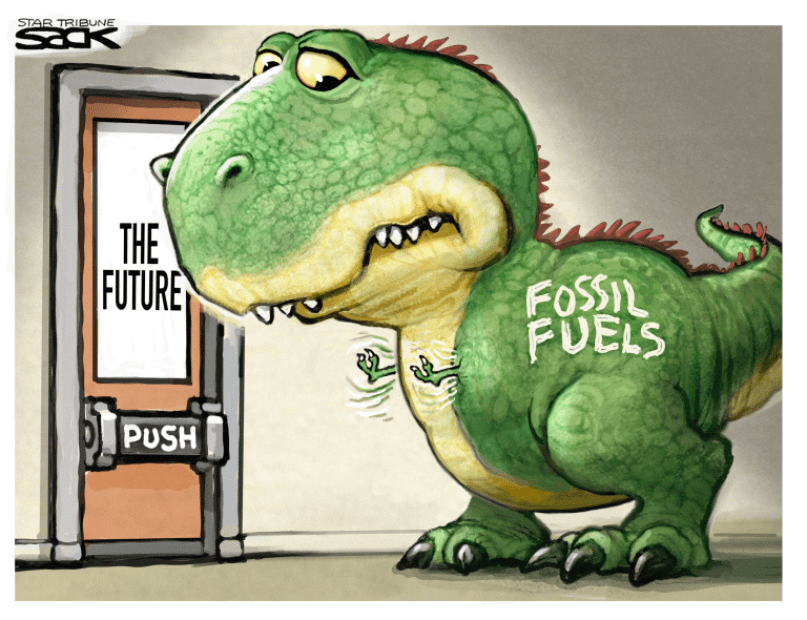“Humankind cannot bear much reality”
-T.S. Eliot
The UN-sponsored Conference of Parties (COP) was conceived as the world’s best hope for reducing the impact of climate change, those hammer-blows of fire, flood and drought that are steadily increasing their prevalence and fury across the planet.
During the fortnight that COP26 was held in Glasgow, several billion tonnes of carbon dioxide and other greenhouse gases (GHG) wafted skyward from power stations, vehicle exhausts, cleared forests, drained wetlands and the burping of a billion cows. Meanwhile, more than 500 sharp-suited fossil fuel lobbyists stalked the conference halls, reassuring national delegates that things aren’t as bad as they seem, and not to forget about the economy (and their careers) before doing anything rash.
The billions of dollars invested in such lobbying paid off when India, supported by the medieval kingdom of Saudi Arabia, the Russian mafia state, and the coal-crazed Australian government, threatened to tank the final resolution unless a goal of “phasing out coal” was changed to the meaningless “phasing down coal”.
Incredibly, this is the first time, in 26 years, that coal has even been referenced in a COP resolution; we’d best not hold our collective breath until oil and natural gas also rate a mention!
There was progress, however, at least on paper; wealthy countries such as New Zealand formed international alliances and pledged to reduce methane and deforestation, as well as to provide financial aid to those developing nations who are being hit hardest by climate change, notwithstanding their own minimal emissions of GHG.
Unfortunately, Climate Change Minister James Shaw made it clear that New Zealand will take little real action to reduce our own emissions; the government will not revisit it’s desultory 2021 GHG budget, nor will it accelerate efforts to reduce methane emitted by agriculture. His post-conference press release continue to make the easily-debunked claim that we will halve our emissions by 2030, when, minus several misleading accounting tricks, the true net-net figure is about 21%, much of which will be purchased overseas.
Our poor performance on the world stage was rewarded by a humiliating “Fossil” award at Glasgow, but it could have been worse – at least we aren’t Australia, whose Prime Minister claimed that Australia’s emissions would drop 35% by 2030, despite offering zero Governmental intent or action to reduce one of the largest per capita carbon footprints of any nation. Australia also opposed a resolution to keep global warming below 1.5 C, which is essential to the survival of small island states such as the Maldives and the Marshall Islands, who’s delegate expressed “profound disappointment” with the COP26 outcome.
One delegate, from a small island state, showed journalists photos of water bubbling up from the ground during king tides; another said that any global temperature increase over 1.5 C would be a death sentence for her people. Be that as it may, based on current (“NDC”) pledges, we can expect about 2.4 C of global warming by 2050.
A recent survey of climate scientists, by the prestigious “Nature“ magazine, found that a majority of them expect catastrophic climate impacts within their lifetimes, driven by an expected 3 C rise in the average global temperature. The survey also shows that many climate scientists are struggling with grief and anxiety.
Another recent survey, of 10,000 young people across the planet, found that they, too, are profoundly concerned. As the survey team leader told the BBC in September, “…the young feel abandoned and betrayed by governments.” A significant number (40%) are hesitant to have children, and nearly half reported feeling distressed or anxious about the climate in a way that was affecting their daily functioning: eating, concentrating, going to work, sleeping, spending time in nature, relationships, playing and having fun.
So, how can we avoid a grim future? There are no magical solutions, no industrial technologies to remove greenhouse gases from the atmosphere at scale, and the fossil fuel companies still are manufacturing doubt, distraction and denial as we push our planetary life support systems toward potentially irrecoverable tipping points.
All we can do, is simply do everything we can, at whatever level we can, to promote community resilience and climate leadership. Get active, join and support community and environmental groups, educate yourself on the solutions, talk to your neighbours and friends, take part in group action, reduce your own consumption of fossil fuels, eat locally, write submissions, and generally make as much of a nuisance of yourself as you can!
After all, what have you got to lose? A sustainable and equitable world is still possible, if we are willing to work for it. As New Zealand’s former PM Helen Clark wrote recently, in the introduction to “Climate Aotearoa”:
“…as the Covid-19 crisis shows, when the ‘team of 5 million’ acknowledges the need to act, it does so, to great effect. That is the sense of urgency with which the climate crisis now needs to be addressed.”









Recent Comments